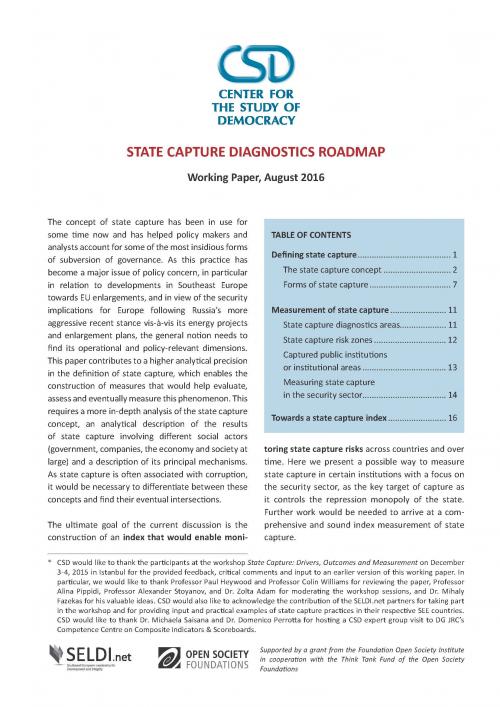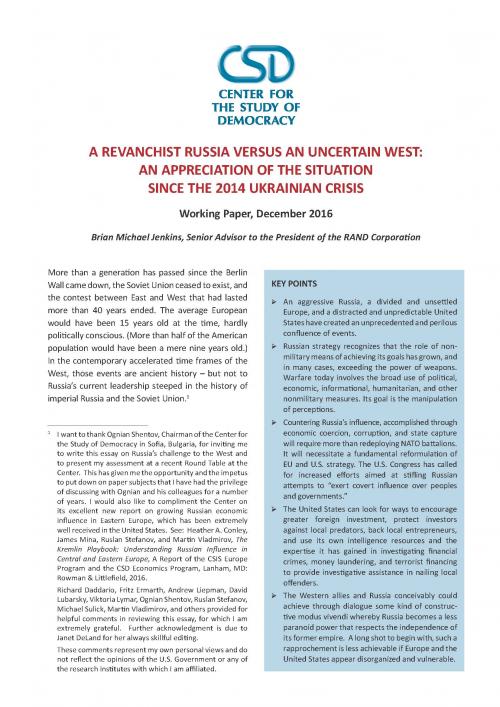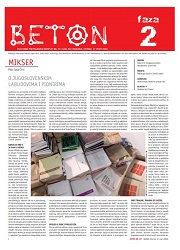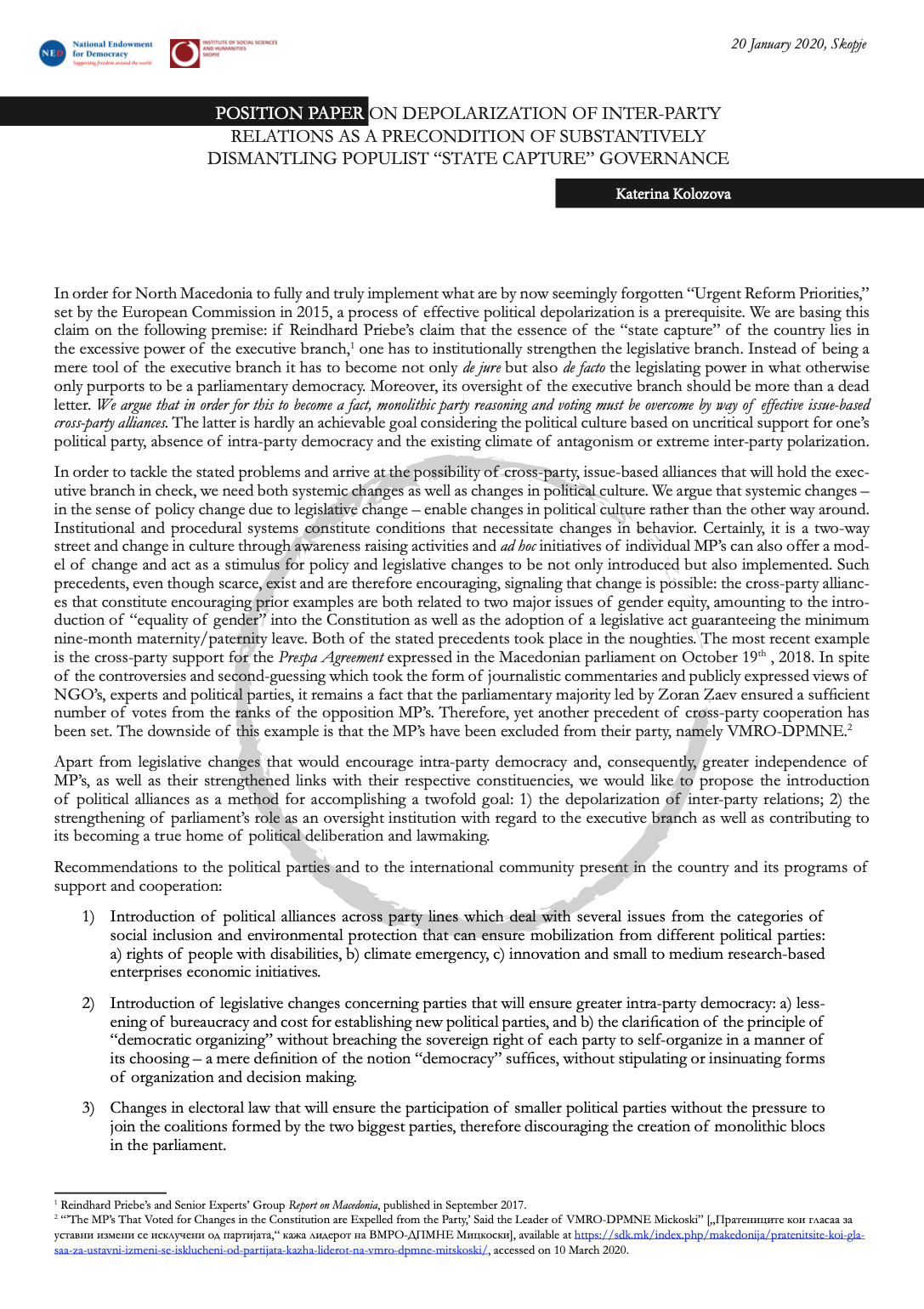
We kindly inform you that, as long as the subject affiliation of our 300.000+ articles is in progress, you might get unsufficient or no results on your third level or second level search. In this case, please broaden your search criteria.


An aggressive Russia, a divided and unsettled Europe, and a distracted and unpredictable United States have created an unprecedented and perilous confluence of events that could undermine the European security architecture and the liberal-democratic order. Ultimately, it is conceivable that the Western allies and Russia could achieve through dialogue some kind of constructive modus vivendi whereby Russia becomes a less paranoid power that respects the independence of its former empire. A long shot to begin with, such a rapprochement is less achievable if Europe and the United States appear disorganized and vulnerable.
More...
The mobilization of bias is considered a contemporary but also important political phenomenon in the democratizing world. This paper intends to find the organizational bases that precondition the mobilization of bias, having understood that the level of democracy inside a political society is the crucial determinant on the latter phenomenon. At the outset, this paper discusses the mobilization of bias phenomenon, by specifically being based in the Bachrach & Baratz scholarship, given the explanation of the tension between pluralism and elitism. Following that, the paper shows some of the instruments the elites use to mobilize the bias. Finally, in its body the paper builds a set of organizational / systemic bases which arguably precondition or give terrain to the mobilization-of-bias practice.
More...
Despite the fact that more than 60 years have passed since the death of Joseph Stalin, the leader of the USSR from 1922 to 1953, the memory of him remains alive. For several years running Stalin has topped the ranking of the most remarkable figures in Russia’s history. Portraits of him appear at political demonstrations and religious events; new monuments to the dictator are erected. The Kremlin’s official rhetoric increasingly refers to the positive aspects of the Soviet era, in particular to the victory in World War II. Representatives of the state’s administration and the Orthodox Church have been making favourable comments about Stalin.
More...
Published between 1930 and 1934 as No 6 of the series "Политическа библиотека". It presents a biography of Mihail Takev (1864-1920), a Bulgarian major and politician, one of the leaders of the Democratic Party in Bulgaria.
More...
MIKSER, Saša Ćirić: O jugoslovenskim labudovima i pionirima; ŠTRAFTA Redakcija ULUS-a: Zimski radovi; ARMATURA, Jelena Veljić: Redovno pranje ruku; BLOK BR. V, Studiostrip: Primeri
More...
MIXER, Arben Idrizi: Popa; antiCEMENT Saša Ćirić: Jezik ljubavi i jezik usamljenosti; CEMENT, Đorđe Krajišnik: Šega, šala, cigla; PREDRAG LUCIĆ, lirika utoke / 19. 11. 2014: Malvina
More...

Since its inception, the security studies represent the core of the International Relations, predominantly dealing with the issues of war and peace. In the years following the Second World War security studies have become a synonym for Strategic Studies with a distinct focus on the military sector. However, with the growing complexity of the international relations` agenda, namely with the rise of economic and environmental challenges count, emergence of the new security challenges, risks and threats, emergence of the new international relations` actors, the traditional view of the sole concept of security, that is, its essence, has become too narrow … The question is whether there is a generally accepted definition of the meaning of concept of security in theory and whether it should be regarded as an “essentially contested concept“ (Baldwin, 1997: 5) or it is more suitable to say that the concept itself is insufficiently explained and blurry. Anyway, the security concept can be “dangerously ambiguous” (Wolfers 1952) should it be used without additional specifications.
More...